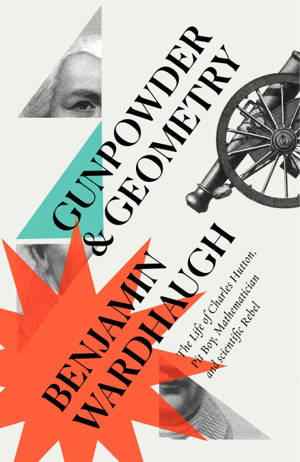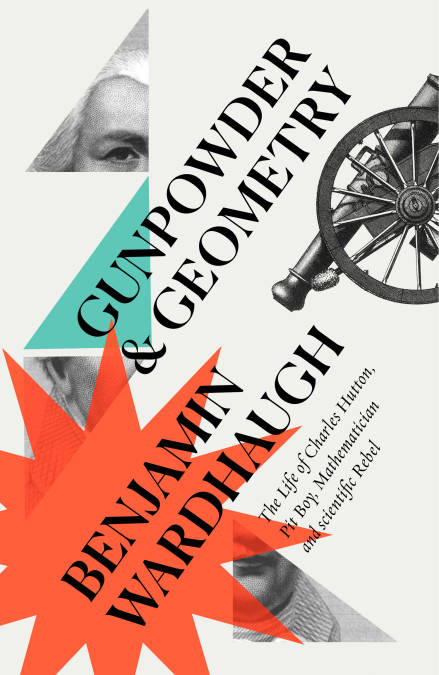
Door een staking bij bpost kan je online bestelling op dit moment iets langer onderweg zijn dan voorzien. Dringend iets nodig? Onze winkels ontvangen jou met open armen!
- Afhalen na 1 uur in een winkel met voorraad
- Gratis thuislevering in België vanaf € 30
- Ruim aanbod met 7 miljoen producten
Door een staking bij bpost kan je online bestelling op dit moment iets langer onderweg zijn dan voorzien. Dringend iets nodig? Onze winkels ontvangen jou met open armen!
- Afhalen na 1 uur in een winkel met voorraad
- Gratis thuislevering in België vanaf € 30
- Ruim aanbod met 7 miljoen producten
Zoeken
Gunpowder and Geometry E-BOOK
The Life of Charles Hutton, Pit Boy, Mathematician and Scientific Rebel
Benjamin Wardhaugh
E-book | Engels
€ 6,99
+ 6 punten
Uitvoering
Omschrijving
August, 1755. Newcastle, on the north bank of the Tyne.
In the fields, men and women are getting the harvest in. Sunlight, or rain. Scudding clouds and backbreaking labour. Three hundred feet underground, young Charles Hutton is at the coalface. Cramped, dust-choked, wielding a five-pound pick by candlelight. Eighteen years old, he’s been down the pits on and off for more than a decade, and now it looks like a life sentence. No unusual story, although Charles is a clever lad – gifted at maths and languages – and for a time he hoped for a different life. Many hoped.
Charles Hutton, astonishingly, would actually live the life he dreamed of. Twenty years later you’d have found him in Slaughter’s coffee house in London, eating a few oysters with the President of the Royal Society.
By the time he died, in 1823, he was a fellow of scientific academies in four countries, while the Lord Chancellor of England counted himself fortunate to have known him. Hard work, talent, and no small share of luck would take Charles Hutton out of the pit to international fame, wealth, admiration and happiness. The pit-boy turned professor would become one of the most revered British scientists of his day. This book is his incredible story.
In the fields, men and women are getting the harvest in. Sunlight, or rain. Scudding clouds and backbreaking labour. Three hundred feet underground, young Charles Hutton is at the coalface. Cramped, dust-choked, wielding a five-pound pick by candlelight. Eighteen years old, he’s been down the pits on and off for more than a decade, and now it looks like a life sentence. No unusual story, although Charles is a clever lad – gifted at maths and languages – and for a time he hoped for a different life. Many hoped.
Charles Hutton, astonishingly, would actually live the life he dreamed of. Twenty years later you’d have found him in Slaughter’s coffee house in London, eating a few oysters with the President of the Royal Society.
By the time he died, in 1823, he was a fellow of scientific academies in four countries, while the Lord Chancellor of England counted himself fortunate to have known him. Hard work, talent, and no small share of luck would take Charles Hutton out of the pit to international fame, wealth, admiration and happiness. The pit-boy turned professor would become one of the most revered British scientists of his day. This book is his incredible story.
Specificaties
Betrokkenen
- Auteur(s):
- Uitgeverij:
Inhoud
- Aantal bladzijden:
- 320
- Taal:
- Engels
Eigenschappen
- Productcode (EAN):
- 9780008299972
- Verschijningsdatum:
- 6/02/2019
- Uitvoering:
- E-book
- Beveiligd met:
- Adobe DRM
- Formaat:
- ePub

Alleen bij Standaard Boekhandel
+ 6 punten op je klantenkaart van Standaard Boekhandel
Beoordelingen
We publiceren alleen reviews die voldoen aan de voorwaarden voor reviews. Bekijk onze voorwaarden voor reviews.











